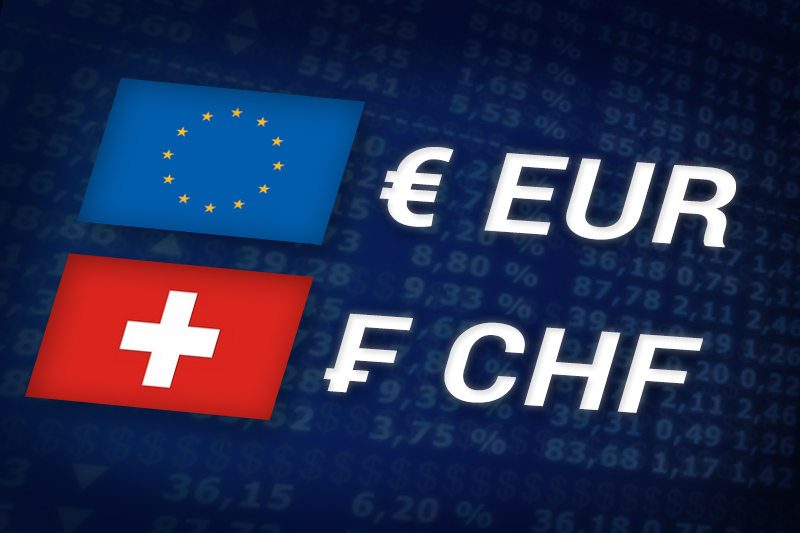Investing.com - The euro pushed higher against the Swiss franc on Tuesday, after the interim head of the Swiss National Bank Thomas Jordan reiterated a pledge to defend the minimum exchange rate of 1.20 per euro with the "utmost determination".
EUR/CHF hit 1.2089 during European afternoon trade, the pair’s highest since January 26; the pair subsequently consolidated at 1.2088, gaining 0.22%.
The pair was likely to find support at 1.2057, the session low and resistance at 1.2108, the high of January 25.
Speaking in Geneva earlier, Jordan said the SNB’s use of a minimum exchange rate cap on the franc against the euro was the most effective tool the central bank had to protect the Swiss economy against the risk of deflation and ease pressure on the country’s exporters.
"The situation remains challenging for large sections of the economy, and even at the current rate, the franc is still very strong," Jordan said. "We expect the franc to weaken over time, and fall back to a level more in line with its economic fundamentals."
Jordan also said that Switzerland faces "very challenging" times and gross domestic product will slow "considerably" this year as a result of the "subdued outlook" for the global economy.
Meanwhile, the euro remained slightly lower against the U.S. dollar, with EUR/USD slipping 0.12% to hit 1.3114.
Also Tuesday, investors were closely watching developments in Greece, amid hopes that political leaders could come to a consensus on the terms of a second bailout, in order to avert a default when a EUR14.5 billion bond repayment comes due on March 20.
Greek Prime Minister Lucas Papademos was set to hold talks with coalition leaders later Tuesday to discuss what conditions they are prepared to accept, after postponing talks on Monday and failing to finalize an agreement over the weekend.
EUR/CHF hit 1.2089 during European afternoon trade, the pair’s highest since January 26; the pair subsequently consolidated at 1.2088, gaining 0.22%.
The pair was likely to find support at 1.2057, the session low and resistance at 1.2108, the high of January 25.
Speaking in Geneva earlier, Jordan said the SNB’s use of a minimum exchange rate cap on the franc against the euro was the most effective tool the central bank had to protect the Swiss economy against the risk of deflation and ease pressure on the country’s exporters.
"The situation remains challenging for large sections of the economy, and even at the current rate, the franc is still very strong," Jordan said. "We expect the franc to weaken over time, and fall back to a level more in line with its economic fundamentals."
Jordan also said that Switzerland faces "very challenging" times and gross domestic product will slow "considerably" this year as a result of the "subdued outlook" for the global economy.
Meanwhile, the euro remained slightly lower against the U.S. dollar, with EUR/USD slipping 0.12% to hit 1.3114.
Also Tuesday, investors were closely watching developments in Greece, amid hopes that political leaders could come to a consensus on the terms of a second bailout, in order to avert a default when a EUR14.5 billion bond repayment comes due on March 20.
Greek Prime Minister Lucas Papademos was set to hold talks with coalition leaders later Tuesday to discuss what conditions they are prepared to accept, after postponing talks on Monday and failing to finalize an agreement over the weekend.
